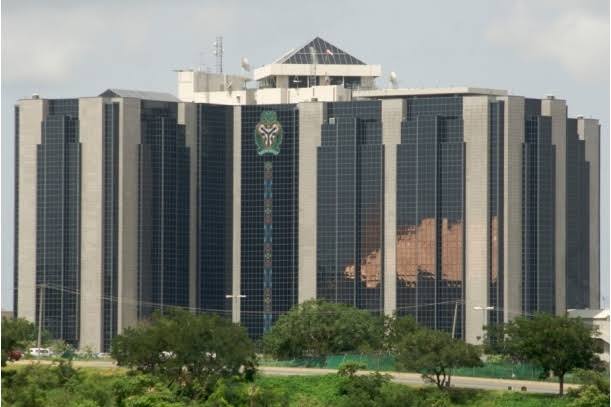
•••As E-payments hits N 204.5 Trillion In Half Year 2022
By Our Reporter
The Central Bank of Nigeria’s cashless policy has spurred the growth of digital and electronic payments in the country, Business Hallmark can report.
The CBN, it would be recalled, had in December 2001, introduced the cashless policy in a move to reduce the amount of physical cash in circulation thereby encouraging the use of electronic platforms for settlement or payment for goods and services.
While the pilot programme started in Lagos in January 2012, the policy was extended to Ogun, Rivers, Anambra, Abia, Kano and the Federal Capital Territory (FCT) on the 1st July, 2013. On July 1st, 2014, the policy kicked off in the remaining 30 states of the federation.
Ten years into the programme, the policy has recorded significant success, with the use of electronic platforms for settlement or payment for goods and services growing exponentially.
According to a just released report by the Nigeria Inter-bank Settlement System (NIBSS) jointly owned by all licensed banks and the CBN, transactions worth N204.5 trillion were performed electronically in the country between January and July 2022 through the settlement’s instant payment platform (NIP).
This represents about 40% appreciation, when compared to the N145.8 trillion figure recorded in the same period of 2021.
According to the NIBSS, which provides the infrastructure for automated processing, settlement of payments and fund transfer instructions between banks, discount houses and card companies, the value of e-payment recorded was a reflection of the increase in the volume of deals within the period.
The N204.5 trillion value, said the NIBSS report, was gotten from 2.7 billion transactions, an increase of 42% over the total 1.9 billion transactions recorded in the same period last year.
A breakdown of the 7 months data by NIBSS showed that the NIP platform recorded N26.6 trillion worth of transactions in January, 27.2 trillion in February, N31.8 trillion in March, N29.2 trillion in April, N29.6 trillion in May, N31.7 trillion in June and N29.3 trillion in July 2022, against the N18.5 trillion in January, N18.3 trillion in February, N22 trillion in March, N20.6 trillion in April, N20.7 trillion in May, N23.1 trillion in June and N22.4 trillion in July 2021.
Developed in 2011 as an account-number-based, online-real-time Inter-Bank payment solution system, the NIBSS NIP funds transfer platform, BH gathered, is preferred by most financial institutions and their customers because it guarantees beneficiaries getting instant value of transferred funds.
The NIP grants customers access to banks and fintechs several payment channels, such as internet banking, Unstructured Supplementary Service Data (USSD), mobile apps, POS, ATM, kiosks, among several other payment channels.
Further breakdown of the data showed that the NIP, ATM and POS channels were the most employed in the period under review.
For instance, NIP and Point of Sales terminals were used 3.41 billion times in the period under review, compared to 2.40 billion times in the corresponding period of 2021.
Channel by channel breakdown of the terminals indicates that while Point of Sales transactions in the country increased N1.05trillion in 7 months to N4.61 trillion from N3.56 trillion recorded in 2021, Nigerians transferred a total of N9.2 trillion from mobile devices between January within the same period.
In January 2022, the sum of N1.05 trillion was transferred from mobile apps, N1.09 trillion in February, N1.37 trillion in March, N1.37 trillion in April and May, N1.47 trillion in June, while the value of mobile transactions as of July 31 stood at N1.55 trillion.
The surge in the use of mobile apps for financial transactions, according to the Nigerian Communications Commission (NCC), is buoyed by the rising mobile connections across the country.
A just released data by the commission obtained by BH indicated that active subscriptions for mobile services across the four networks of Airtel, MTN, 9mobile and Globacom increased by 10.9 million in the first six months of 2022.
According to BH findings, the surge in electronic money transactions and digital payments was largely helped by the outbreak of Covid19 pandemic which necessitated government imposed lockdowns and restrictions across the country.
Owing to the restrictions, commercial banks were forced to close down many branches and drastically scale down operations where they opened their doors.
Affected by the shutdown, many Nigerian businesses and individuals had to resort to electronic channels to complete financial transactions at a much lower costs.
An accounting officer in a multinational firm with headquarters in Lagos informed our correspondent that his firm no longer take employees monthly salary schedule to banks, saying it is now done in-house through a software prepared by the company’s IT department.
“Our employees salaries are now paid through a secured computer system in the accounts department. How it works is that we give instructions to banks through our electronic apps provided by the banks to pay on the scheduled date.
“And as long as there are enough funds in the company’s accounts, salaries are automatically paid to workers, even when the pay day falls on a weekend.
“I remembered a pleasant experience with a surprised staffer who woke me up around 2.30am one Sunday night to report that he just received an alert (salary payment).
“The baffled employee quietly demanded to know how we were able to achieve that miracle since banks don’t open on weekends.
“Rather than being angry with him for waking me up in the middle of the night, I gently explained to him that payment of staff salaries had already been programmed for the 25th of every month on the company’s computer.
“And that since the date don’t normally fall on the same day every month, the ‘miracle’ he claimed took place is bound to happen”, explained the accounts officer who did not want his identity revealed.
Many businesses and individuals, our correspondent learnt, now prefer online transactions to preparing checks or physically visiting banks branches to transact businesses.
“It is even more expensive to make financial transfers using cheques or other bank instruments. Before now, we pay thousands of naira as banks charges while paying staff salaries.
“But that has stopped. Apart from data cost and minimal transfer charges which cost the company less than N5,000 a month, we now save substantial amount from bank charges and transportation cost.
“Apart from that, it is even more convenient as the whole process is now done in-house”, said Deji Olatunji, a bursar with DELAN College, a secondary school based in Ikeja.
However, while the surge in the adoption of digital payments is aiding the growth of CBN’s cashless policy, it has also caused the loss of revenues from some transactions such as cheques, which has continued to maintain a downward trend.
“One of the areas banks used to make money is through issuing of cheques to customers. Though most customers don’t know it, they are usually charged twice, when applying for cheque books and anytime they withdraw money with the cheques.
“Unfortunately, as many Nigerians continue to adopt the e-payment system and pay for goods and services without the use of cheques and physical cash, banks are losing their traditional source of revenue too”, said a branch manager of a first generation bank at Fagba, Lagos.
The International Monetary Fund (IMF), it would be recalled, had disclosed that the pandemic pushed a lot of Nigerians to explore internet banking and other digital transactions.
The body also said in the report that the situation also led to the growth in agency banking like the POS service.
According to the fund, Nigeria was among African countries that recorded high online payment methods in 2021, with 35 percent of e-commerce payments taking place through cards, and 21 percent by bank transfers.
Meanwhile, the growth of the cashless policy also comes with it’s own challenges. According to a fraud report recently released by the NIBSS, fraudsters have also upped their game in their attacks leading to a 186% increase in financial frauds from 16,128 in 2019 to 46,126 in 2020.
According to the NIBSS, the fraudsters are focusing more on the mobile payment system, hence, fraud attempts on mobile increased by 330% between January and September 2020.
NIBSS also said in the Q3 2020 fraud report that fraudsters are also targeting web payment and Point of Sales (POS) both of which recorded 173% and 215%increase in fraud attempts in the period.
According to a circular by the apex bank, signed by its Director of Payments System Management Department, Musa Jimoh, the revision would take effect on the operations of the NIBSS Instant Payments System and other Electronic Payment Options with similar features in the country.
The CBN, however, stated that NIBSS Instant Payments System and other Electronic Payment Options must “accept indemnity from customers for ‘Highly Secured Online Funds Transfer above N1m for individual and N10m for corporate, subject to a maximum of N25m (Individual) and N250m (Corporate);”
The CBN told the payments system operators to provide customers with the option of electronic or paper indemnity based on the customer’s preference and implement electronic indemnity with stricter controls requiring biometric verification of identity
It also told the online payment operators to adhere to multiple factor authentication (MFA) for ‘Highly Secured Online Funds Transfer.









